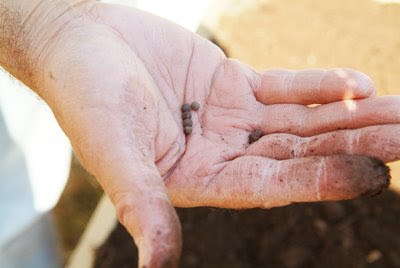





I (really!) love food. I love the smells, textures, colors, and flavors that come with good food. As a photographer, from the moment I had my first camera, I have always loved to capture food in images. It is also wonderful to be able to share good food around a table with others. Living in the Dominican Republic, this was an often shared experience and something very central to life in this very relational and hospitable culture. Now, back in Canada, I am blessed to have many shared meals around a table with friends and family...including some favorite Mennonite delicacies like Farmer sausage and Perogies! (pictured)
Recognizing One Another in Shared Meals
In a society in which even family members eat alone and on the run, we are often not aware of the significance of shared meals. But, in most cultures, eating together expresses mutuality, recognition, acceptance, and equal regard. Even in our own society, eating together remains quite bounded. Unless we intentionally break patterns, we usually eat with people who are similar to ourselves. When strangers and hosts are from different backgrounds, the intimacy of a shared meal can forge relationships which cross significant social boundaries.
Offers of food or a meal together are central to almost all biblical stories of hospitality, to most historical discussions of hospitality, and to almost every contemporary practice of hospitality. In the context of shared meals, Jesus frequently challenged the prevailing religious and cultural boundaries by the company he kept and exposed hidden patterns of social exclusion. He was a guest in the home of a tax collectors, dined with sinners, and taught hosts to welcome those most likely to be excluded.
Many of the early church’s struggles over recognition and inclusion surfaced in the context of eating together. Peter, at God’s instruction, visited Cornelius and ate with his household—a powerful demonstration of the acceptance of Gentiles into the Christian community (Acts 10-11). Paul addressed the tensions between rich and poor and believers that became apparent in the common meals when the poor were “humiliated” by believers with higher status and wealth. In a community that declared ethnic and social boundaries irrelevant, some poor believers were being treated as less significant members (1 Cor. 11:17-34).
Shared meals are central to every community of hospitality—central to sustaining the life of the community and to expressing welcome to strangers. For many participants, it is the high point of their day and a return to an earlier time when families regularly ate together. Jean Vanier explains that when he first began sharing his daily meals with men with serious mental disabilities, he started to understand the force of Jesus’ words in Luke 14 about who should be invited to the banquet. “Sitting down at the same table meant becoming friends with them, creating a family. It was a way of life absolutely opposed to the values of a competitive, hierarchical society in which the weak are pushed aside.”
Because eating is something every person must do, meal-time has a profoundly egalitarian dimension. As one woman from the Catholic Worker commented, no matter what our backgrounds or assets, we are all eaters and drinkers. “It is the great leveler.” Meal-time, when people sit down together, is the clearest time of being with others, rather than doing for others. It is the time when hospitality looks least like social services.
Often we maintain significant boundaries when offering help to persons in need. Many churches prepare and serve meals to hungry neighbors, but few churches find it easy to sit and eat with those who need the meal. When people are very different from ourselves, we often find it more comfortable to cook and clean for them than to share in a meal and conversation. We are familiar with roles as helpers but are less certain about being equals eating together. Many of us struggle with simply being present with people in need; our helping roles give definition to the relationship but they also keep it decidedly hierarchical. As one practitioner observed, eating together is “the most enriching part but also the hardest part. When we were first here it was so hard. We didn’t have any specific things to do, just be with people.”
Practitioners recognize the relation between justice and shared meals. Ed Loring, of the Open Door Community in Atlanta, observed that “justice is important, but supper is essential.” His comment in no way reduces the importance of sustained efforts at social justice, to which the entire community is committed. But, as Murphy Davis, cofounder of the Open Door, explained, “Without supper, without love, without table companionship, justice can be a program that we do to other people.”
In many settings the line between the shared meal and the Eucharist is blurred; the two flow into each other much as was the case in the early church. The sacrament aspects of meals become clearest in these settings, but even separate from the Eucharist, one often senses a divine mystery in dining together at a table of welcome.
(Making Room: Recovering Hospitality as a Christian Tradition. Pohl, Christine D. Eerdmans, 1999. Page 73-75)










































